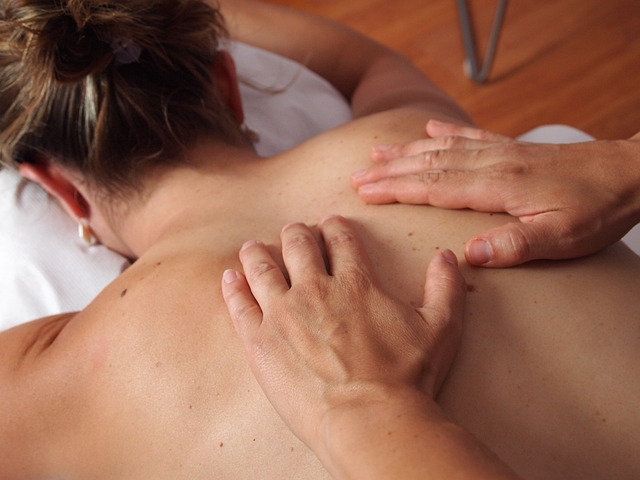Learn why exercising might be one of the most effective ways to manage stress.
While it is impossible to eliminate stress totally, learning how to cope with it in a healthy way can help lessen some of the worst effects.
If you’re like most individuals, stress is an everyday occurrence. According to some studies, up to 77% of us experience the physical impacts of stress on a regular basis, such as headaches, insomnia, anxiety, weight gain, muscle aches and pains, crankiness, and problems focusing.
How Do You Handle Stress?
What is the first thing you usually do when you are stressed? Do you want something to drink? Why not pick a fight with your spouse? Should you flip off the driver in front of you? Sometimes letting out your tension in those ways can provide short comfort, but there are consequences, not the least of which is an irritated spouse or a tense driver.
It was difficult to think clearly at that time. But the best thing is to take a step back, and take a slow and a deep breath. And think about what and how you need to destress yourself. Keep in mind that everyone is unique. What you require at any given time may change from what someone else requires or what you require at a later date.

Humans tend to gravitate toward activities that bring immediate enjoyment (and yelling at bad drivers can certainly feel nice), but these activities do not provide long-term stress reduction. As a result, having a toolbox full of possibilities is essential.
What can help is doing something physical that takes your mind and body out of the fight-or-flight stress reaction and controls stress hormones, so your body feels better.
Easy Ways to Reduce Stress
During a workout, your body often settles into its own rhythm, allowing you to let your thoughts wander and sort through problems, find solutions, or simply daydream for a time. Try these basic stress-relieving techniques:
- Engage in a mind-body discipline such as meditation or relaxing yoga.
- Ride your bike slowly.
- Take a walk alone or with a friend.
- Clean the car
- Working in the garden
- Attempt a mindless or repetitive chore, such as dishwashing, raking leaves, or cleaning out drawers.
Stress Relieving Exercises
Workouts that include cardio and weight training are good for reducing stress. Your heart rate is most likely already increased as a result of stress, and a decent workout will help you use that to relieve any extra tension and make you feel calmer. Consider the following ideas:
Cardiovascular activity: Nothing beats a cardio workout for getting you moving, burning calories, and escaping life for a few minutes. Check out these at-home cardio exercises.
Circuit exercise: These workouts are fast-paced, keeping your mind occupied as your worries fade into the background. Check out this basic circuit training program.
Training with intervals: Going hard and then easy is an excellent technique to work hard without having to maintain a high level of intensity throughout the workout. To get started, try these interval workouts.
Strengthening exercises: Sometimes you want to feel strong in your life, and if you can’t feel it in your current circumstances, feeling it in your body is the next best thing. Take up some weights and demonstrate your strength to the world. For inspiration, try these strength training programs.
Mind-Body Exercises
Strength training and aerobics might help brighten you up, but there are other techniques to soothe yourself and allow your mind to rest and slow down. These mind-body practices can assist you in doing so.
Laughter: Specialists have long recognized the benefits of laughter. It benefits your body in a variety of ways. Yet, for the most part, it just feels nice.
Massage: Make a massage appointment, so you have something to look forward to. If that isn’t a possibility, relax at home with a hot bath or by curling up with a good book or magazine.
Meditation: It can be difficult to find the time and patience to relax. Meditation, on the other hand, does not have to be difficult. Merely pausing to breathe for a few minutes can serve as your own form of meditation.
Mindfulness: Just paying attention to what you’re doing can keep you in the current moment, making it one of the most effective stress-reduction techniques.
Yoga is an ancient exercise that can help you quiet your mind and relax your body. Yoga can be practiced in a variety of ways, some of which are vigorous and others of which are calming.
Pilates: While more rigorous than certain varieties of yoga, the Pilates approach forces you to focus on your body while working on core strength, stability, and flexibility.
Begin With Exercise to Manage Stress
Reduce your stress as much as possible by doing some exercise. Enjoy the benefits of your workout, then drink, refuel, and look after yourself. Note that while exercise can be utilized as an emergency stress coping method, it can also be used to alleviate routine daily stress.
Solicit assistance. It is beneficial to have a workout partner to hold you accountable. Make an effort to meet a friend or family member once a week for a walk in the park or a local exercise class. Knowing that someone is expecting you makes it easier to get started and stay motivated.
Maintain simplicity. Changing into training clothes might sometimes feel like a mountain to climb. Pick activities that require little preparation, such as walking, gardening, house cleaning, or light stretching.
Make the transition as simple as possible if you tend to be more sedentary when you’re anxious; making the transition from sitting to anything physical can feel daunting. Let yourself five or ten minutes before exercising to get your body going. Do some light cleaning, stretching, or simply walk about the home.
Allow for an extra warm-up time. Give yourself additional warm-up time than normal if you’re conducting a high-intensity activity (such as running or aerobics). If you normally begin by jogging, begin with a leisurely stroll. Allow your body to warm up completely and gradually increase your heart rate.
Provide yourself additional time to cool down. It’s always a good idea to feel happy at the end of your workout. Let yourself at least 10 minutes to unwind before stretching for a few minutes.
Take small steps. If you’re busy, thinking about accomplishing 30 minutes of movement may feel overwhelming. Determine to only do anything for a few minutes. You’ll probably want to keep going since it feels so amazing.
To Conclude
You’ve probably heard that stress can kill you. It will undoubtedly age you. Stress can impair your immune system and cause weight gain, depression, anxiety, and other symptoms.
Instead of grabbing a drink or seeking a sugar fix, take a walk around the block to obtain some fresh air.

